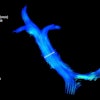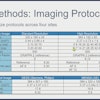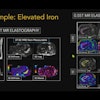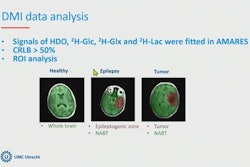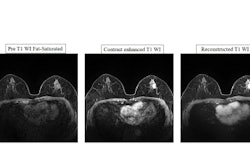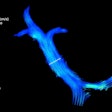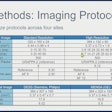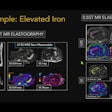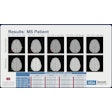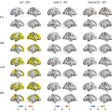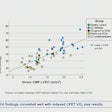HONOLULU - MRI is an "indispensable" tool for the diagnosis and treatment staging of Alzheimer's disease, according to a talk delivered May 11 at the ISMRM meeting in Honolulu.
Why? In part because the diagnosis of the disease is shifting to a biomarker-based, biological framework, presenter Yuhei Takado, MD, PhD, of the National Institutes for Quantum Science and Technology in Chiba, Japan, told session attendees.
 Yuhei Takado, MD, PhD
Yuhei Takado, MD, PhD
"MRI remains indispensable for subtyping, prognosis, and treatment monitoring," he said. "Precision medicine in Alzheimer's disease will require detailed MRI phenotyping beyond amyloid status."
There are two neuropathological hallmarks of AD, Takado noted: amyloid beta plaques and tau proteins. The appearance of amyloid beta is the earliest biological change in the brain of an individual with Alzheimer's, while the baseline burden of tau proteins predicts longitudinal brain atrophy.
The 2024 revised Alzheimer's Association criteria for diagnosis and staging of AD defines the condition by the presence of Core 1 biomarkers (amyloid PET, approved cerebrospinal fluid biomarkers, and accurate plasma biomarkers [particularly phosphorylated tau 217]) and proposes an integrated biological-clinical staging framework, Takeda noted.
"AD is defined by biology, not symptoms," Takado said. "Biomarker evidence of neuropathology is sufficient for diagnosis."
Conventional MRI sequences (T1-weighted imaging, T2-weighted imaging, FLAIR, and T2*) have been used in disease modulation therapy clinical trials for assessing brain atrophy and detecting amyloid-related imaging abnormalities, Takado said. He outlined the role of MRI in AD biomarker identification, noting that the modality can help with the following:
- Differential diagnosis;
- Determining the best therapeutic method;
- Estimating prognosis; and
- Understanding the pathophysiology of the disease.
The bottom line? MRI is a crucial tool for the diagnosis and treatment of AD, according to Takado.
"MRI will not just observe Alzheimer's disease – it will guide its treatment," he concluded.
Check out AuntMinnie.com’s full coverage of ISMRM 2025 here.
